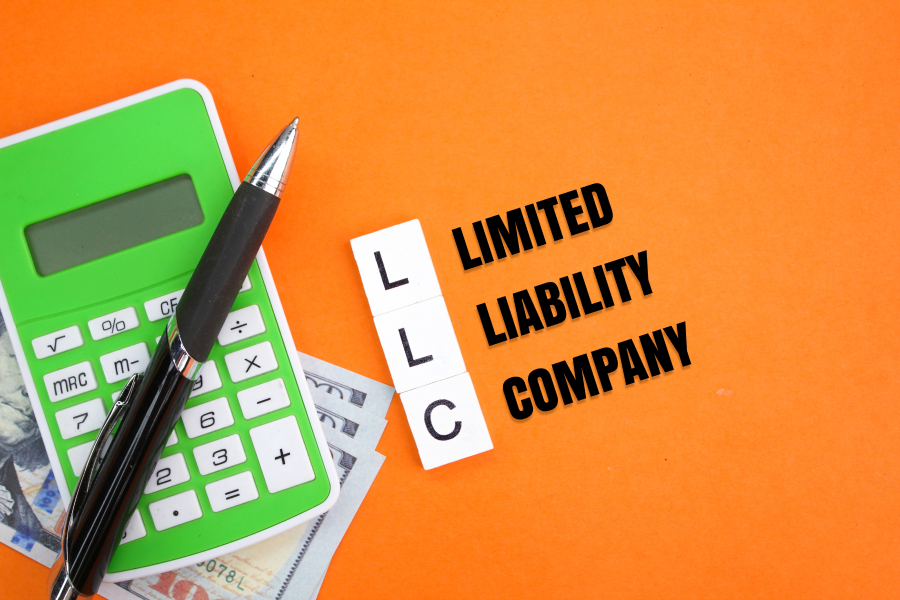Which Business Structure is Right for You?

Starting a new business is an exciting venture, but choosing the right business structure is one of the most critical decisions an entrepreneur will make. The structure you choose will affect everything from taxes and liability to fundraising and management. In this post, we’ll explore the different business entity options and the key legal considerations for each to help you make an informed decision.
Types of Business Entities
When forming a business, several options are available, each with unique advantages and disadvantages. The most common business structures include:
Sole Proprietorship
A sole proprietorship is the simplest form of business structure, where the owner operates the business as an individual. There is no legal distinction between the business and the owner, meaning profits and losses are reported on the owner’s personal tax return. However, the owner is personally liable for all business debts and obligations.
Partnership
A partnership is an entity where two or more individuals share ownership. This can be a general partnership, where all partners are equally responsible for the business, or a limited partnership, where some partners have limited liability. Partnerships offer flexibility but can present challenges when it comes to liability and profit-sharing.
Limited Liability Company (LLC)
An LLC is a popular choice for small to medium-sized businesses due to its flexibility and limited liability protection. Owners (referred to as members) are not personally liable for the company’s debts, and LLCs offer tax advantages, allowing profits and losses to pass through to individual tax returns without the double taxation that corporations face.
Corporation (C-Corp and S-Corp)
Corporations are separate legal entities from their owners (shareholders), offering the highest level of liability protection. They are more complex to establish and maintain, requiring compliance with formalities such as annual meetings and detailed record-keeping. C-Corps are subject to double taxation (corporate income tax and shareholder dividend tax), while S-Corps allow profits and losses to pass through to shareholders to avoid double taxation, but they come with specific eligibility requirements.
Key Considerations When Choosing a Business Structure
Liability Protection
The level of liability protection you need is an essential consideration. Structures like LLCs and corporations provide a shield for owners, protecting their personal assets from business liabilities. In contrast, sole proprietorships and general partnerships expose owners to personal liability for business debts and legal actions.
Tax Implications
Different business structures have different tax implications. For example, sole proprietorships and LLCs benefit from pass-through taxation, while C-Corps face double taxation. Understanding how each entity is taxed will help you choose the most tax-efficient option for your business goals.
Management and Ownership Flexibility
The way you plan to manage and own the business also impacts the choice of structure. LLCs offer flexibility in management and ownership, while corporations have a more rigid structure with defined roles (e.g., directors, officers, and shareholders) and require adherence to corporate formalities.
Fundraising and Investment
If you plan to raise capital from investors, certain structures are more attractive than others. Corporations, especially C-Corps, are often preferred by investors because they offer stock options and greater opportunities for ownership. LLCs and partnerships, while offering flexibility, may be less appealing to investors due to their tax structure and transferability limitations.
Growth and Scalability
Consider your business’s long-term vision. If you plan to scale your business significantly or take it public, forming a corporation may be the best option. Corporations are designed to support growth, handle multiple investors, and provide a clear framework for issuing shares.
Legal Steps for Forming Your Business Entity
1) Register Your Business Name
Once you’ve decided on a name, you’ll need to check its availability and register it with your state’s business authority. This process may also involve filing for a trademark if you want to protect your brand on a national level.
2) Draft Legal Documents
Depending on the entity type, you may need to draft and file specific documents. For LLCs, an operating agreement is essential to outline ownership, management, and profit distribution. For corporations, bylaws must be created to govern the business’s operations.
3) Obtain Necessary Permits and Licenses
Certain businesses may require permits or licenses at the local, state, or federal level. It’s crucial to understand what licenses are needed for your specific industry and location.
4) Compliance and Record-Keeping
Maintaining compliance is an ongoing process. Corporations, in particular, must hold annual meetings, file periodic reports, and maintain detailed records. Failure to comply with these requirements can result in penalties or loss of corporate status.
Why Legal Support is Essential
Forming a business entity is more than just filing paperwork; it involves strategic planning and legal expertise. Working with an experienced corporate attorney can help you:
- Choose the best structure for your business’s goals and needs.
- Draft customized legal documents that protect your interests.
- Navigate regulatory requirements and avoid compliance pitfalls.
- Plan for growth, ensuring your structure supports your future vision.
Conclusion
Choosing the right business entity is a crucial step in setting up your business for success. By understanding the different options and their implications, you can make an informed decision that aligns with your business goals. If you need assistance in forming a business or reviewing your options, our team at Ridenour Law Firm is here to guide you every step of the way.
Contact us today for a consultation and let us help you build a solid legal foundation for your business.
